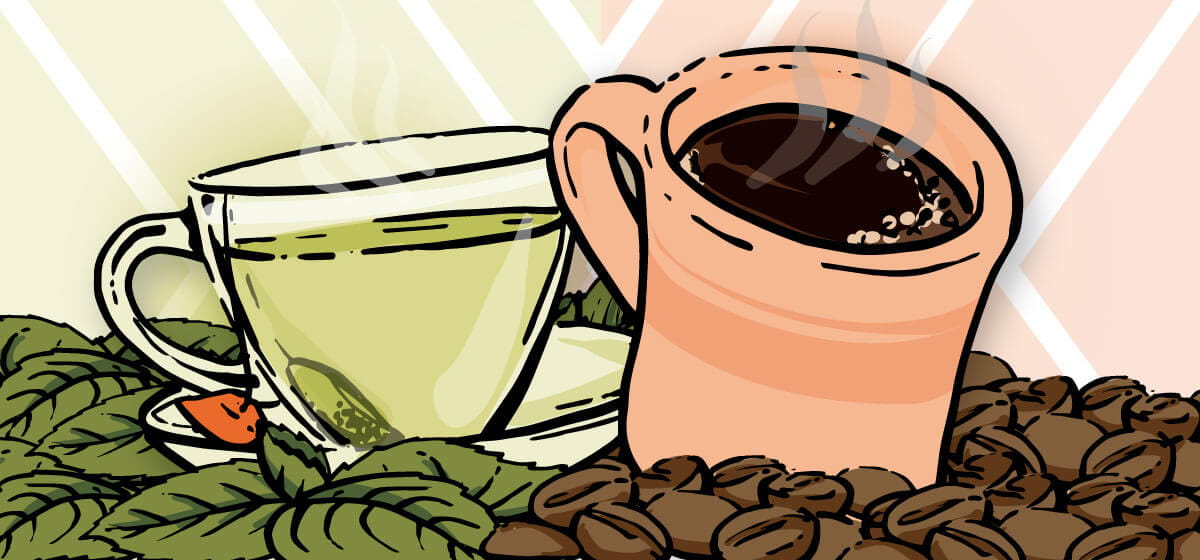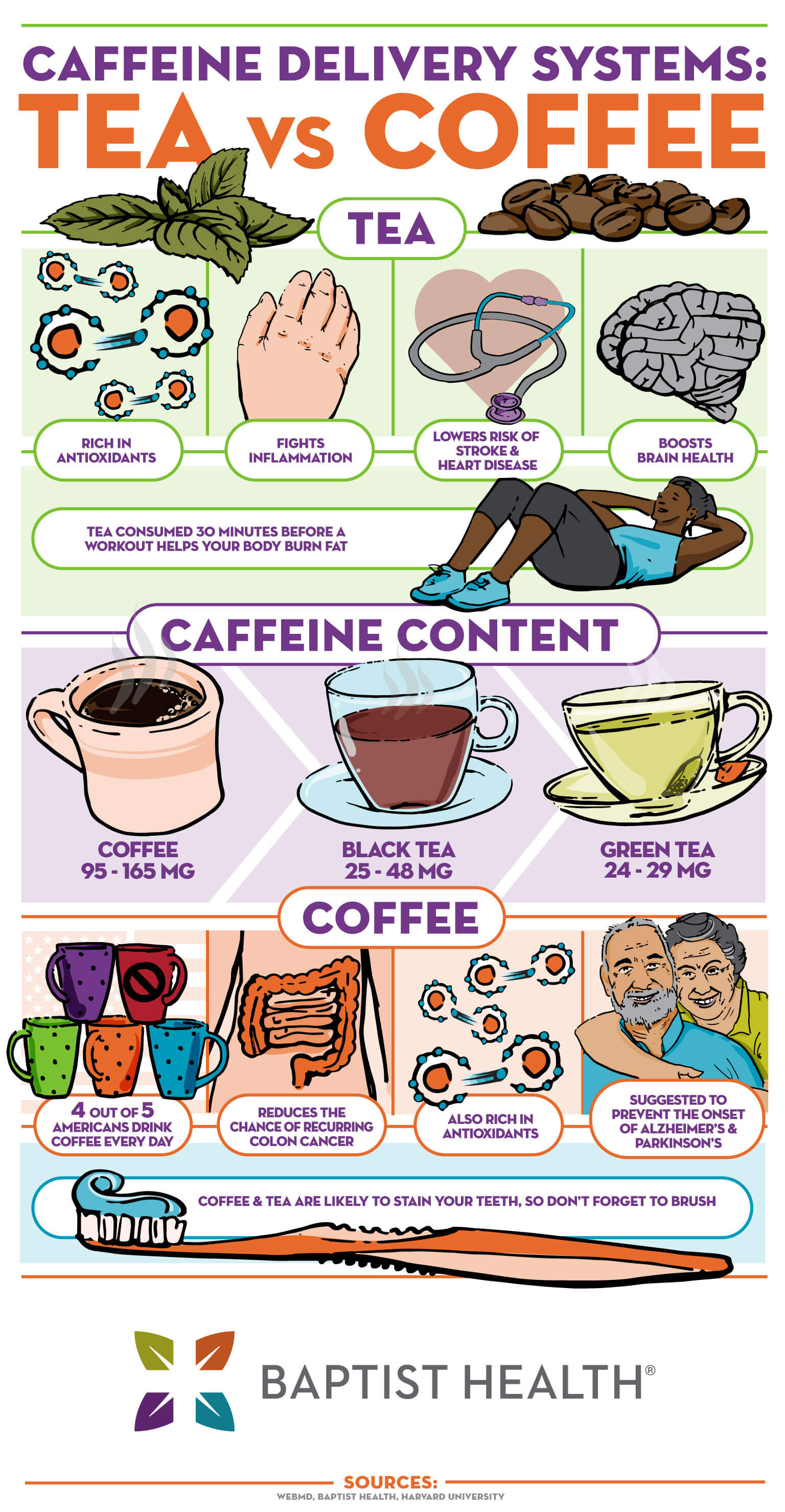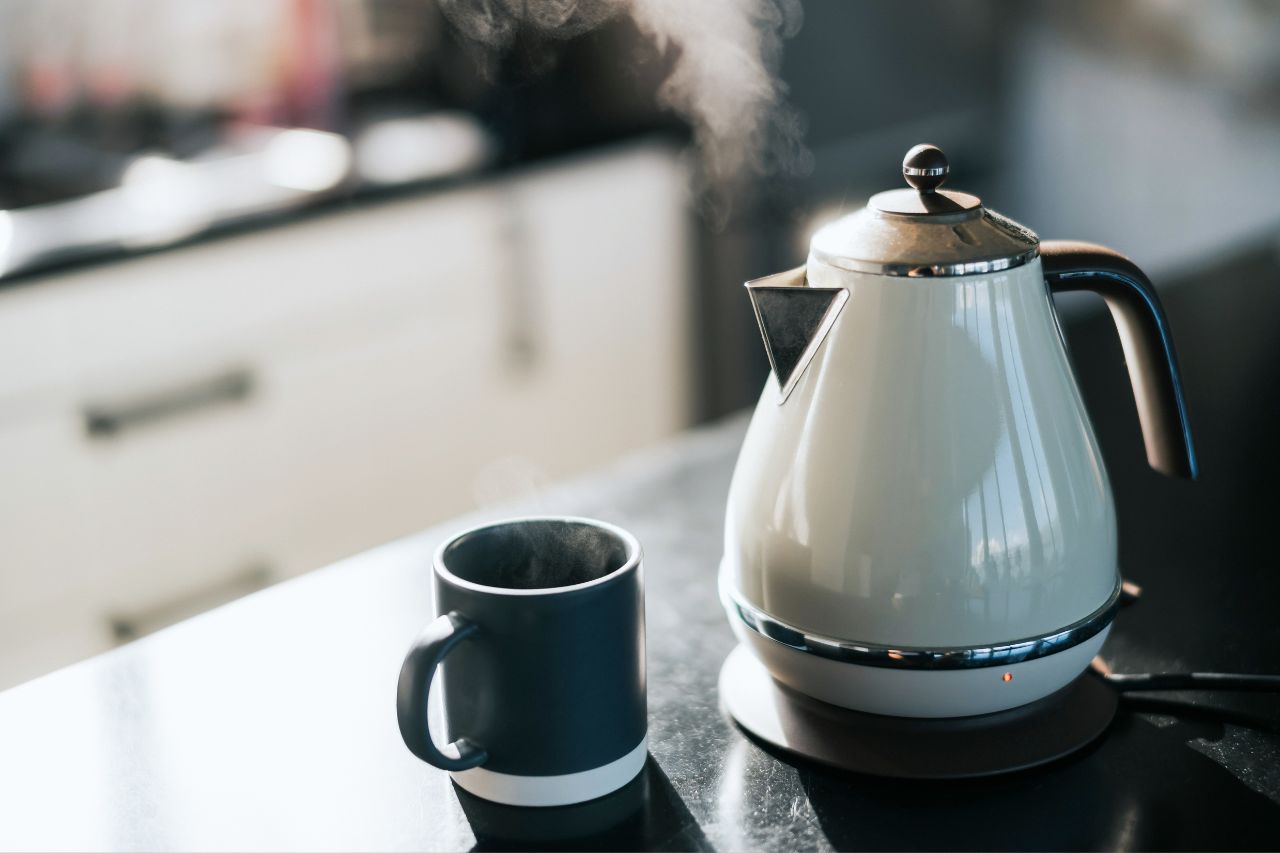Caffeine Delivery Systems: Tea vs Coffee

It seems like one of life’s eternal questions: Tea or Coffee?
When consumed in moderation and without being souped-up with calorie-laden sugar, cream or syrup, both can have health benefits with minimal proven ill effects.
Tea is more popular than coffee
Worldwide, only water is consumed more than tea. People use it as a pick-me-up in the morning as well as to relax at the end of the day.
Rich in antioxidants, tea has proven to fight inflammation, as well as lower risk of stroke and heart disease, and as a boost to brain health. And studies show tea drinkers have lower odds of skin, breast and prostate cancers.
Tea can also boost your metabolism. When consumed 30 minutes before a workout, it helps your body burn fat.
Coffee packs a powerful caffeine punch
About four out of five Americans drink coffee every day. Why? Well, mostly it’s for the caffeine, with 65% of Americans drinking it with breakfast. And coffee does boast higher caffeine than teas – a typical cup of brewed coffee has 95-165mg of caffeine compared to 24-29mg (green) or up to 48mg (black) for tea.
Now removed from lists of suspected carcinogens, coffee has even been suggested to reduce the chances of recurring colon cancer. And a recent Harvard study found coffee may reduce the chances of premature death. Like tea, coffee is also a good source of antioxidants.
And when it comes to healthy aging, it’s important to note that both coffee and tea have been suggested to prevent the onset of Alzheimer’s and Parkinson’s disease.
Potential downsides to both include caffeine’s effect on sensitive tummies and both coffee and tea are likely to stain your teeth.
In the end, both coffee and tea have plenty of up-sides and few down-sides. So, if you have to choose, choose what makes you happy. Just don’t forget to brush your teeth.




